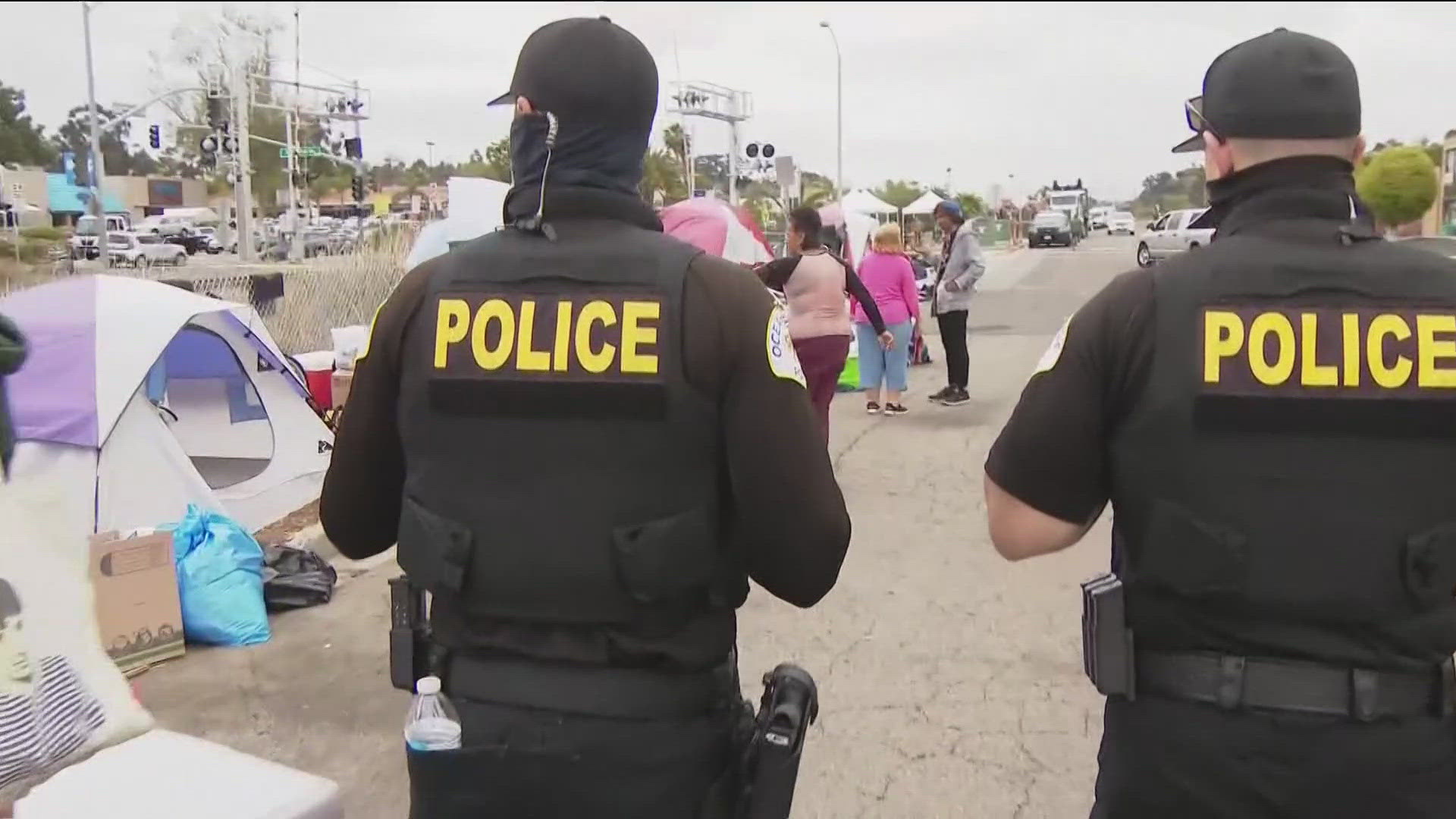SAN DIEGO — Following Friday's Supreme Court decision that allows cities to enforce bans on homeless people sleeping outside in public spaces, local groups and elected leaders voiced their thoughts.
"Today's decision rightly empowers state and local officials to compassionately clear encampments," said Senate Minority Leader Brian W. Jones, R-Santee. "Californians should not have to tolerate the encampments that have taken over our communities. This is not about criminalizing homelessness -- it's about ensuring the safety of both the community and homeless individuals.
"With this decision, Democrat politicians can no longer justify allowing this severe public health and safety crisis to persist on our streets. It's time to clean up California."
The justices, on a 6-3 vote on ideological lines with conservatives in the majority, ruled in favor of the Oregon city of Grants Pass, saying the measures do not run afoul of the Constitution's Eighth Amendment, which bars cruel and unusual punishment. The decision struck down a Ninth Circuit Court of Appeals ruling.
The three liberal justices, Sonia Sotomayor, Elena Kagan and Ketanji Brown Jackson, dissented.
"It is possible to acknowledge and balance the issues facing local governments, the humanity and dignity of homeless people, and our constitutional principles," Sotomayor wrote in her dissent. "Instead, the majority focuses almost exclusively on the needs of local governments and leaves the most vulnerable in our society with an impossible choice: Either stay awake or be arrested."
San Diego, Santee and other municipalities around the county have passed similar ordinances to the one in Oregon.
Justice Neil M. Gorsuch wrote for the majority opinion.
"Homelessness is complex," Gorsuch wrote. "Its causes are many. So may be the public policy responses required to address it. At bottom, the question this case presents is whether the Eighth Amendment grants federal judges primary responsibility for assessing those causes and devising those responses. It does not."
Gov. Gavin Newsom praised the decision, saying, "Today's ruling by the U.S. Supreme Court provides state and local officials the definitive authority to implement and enforce policies to clear unsafe encampments from our streets.
"This decision removes the legal ambiguities that have tied the hands of local officials for years and limited their ability to deliver on common- sense measures to protect the safety and well-being of our communities."
Advocates for those experiencing homelessness expressed shock and displeasure with the opinion.
"We're dismayed to learn of today's ruling," said Paul Downey, CEO of local nonprofit Serving Seniors. "Homelessness is a housing problem, not a criminal justice issue. Turning people who cannot afford housing due to causes largely beyond their control into lawbreakers will not solve this problem. Instead, it will only increase serious social and economic costs for our communities."
Serving Seniors filed an amicus brief with the court along with hundreds of organizations strongly advocating for the Ninth Circuit's decision to remain in place. The organization "rejects the effort to criminalize homelessness," and "endorses supportive housing models as the only humane, effective, and economically sensible solution to homelessness."
Some elected leaders believed the decision was the correct one, and would allow for what they claim are the root causes of homelessness -- addiction and mental health issues -- to be tackled head-on.
"The Supreme Court's decision today, upholding cities' authority to ban outdoor sleeping on public sidewalks, is a crucial step forward for common sense," said El Cajon Mayor Bill Wells. "This ruling enhances the safety and well-being of our community and provides an opportunity to support those in need.
"We need to adopt more comprehensive strategies that address the root causes of homelessness and addiction," he said. "Ensuring public spaces remain safe and accessible is essential for the overall health of our community. This decision allows cities to take the necessary steps to maintain order and support struggling people."
Tamera Kohler, CEO of the Regional Task Force on Homelessness, said the ruling wouldn't do anything to help with the homelessness crisis.
"This ruling, by a divided Supreme Court, won't help us solve homelessness, but it will harm people experiencing homelessness," she said. "It's inhumane. It stands up more barriers to housing. And it gives a green light to politicians and police who prefer arrests and time behind bars, rather than real solutions."
Kohler said the key to solving homelessness is taking steps to prevent people from falling into it in the first place -- steps such as affordable housing, supportive services and mental health treatment.
"RTFH will continue to advocate for best practices with proven track records, not failed policies that hurt people who need a helping hand," she said. "These are our friends and neighbors, senior citizens and families, fast- food workers, people who lost a job or an apartment, or who have been injured. They don't deserve to be jailed for sleeping. No one does."
Deacon Jim Vargas, president and CEO at Father Joe's Villages, San Diego's largest homelessness services provider, agreed that criminalizing homelessness was not the solution.
"Thousands of men, women and children across the country have little option each night other than to find a place to sleep outside. For our neighbors who have to make this impossible choice, jails are not the answer," he said. "The answer is this, as we've led in San Diego for decades: investing in increasing available, affordable housing supply and the crucial services that help people rebuild their lives and, ultimately into a home, whether those services be health care, substance use treatment, or childcare.
"So many of us are simply one crisis away from experiencing homelessness. As cities consider how to move forward following today's Supreme Court decision, I hope they will remember this. What our neighbors deserve is love, compassion, and a second chance. It is only with compassion, not bars, that we will ensure all of our neighbors can thrive, not languish on the streets."
WATCH RELATED: Barrio Logan residents worry about growing homeless encampments

